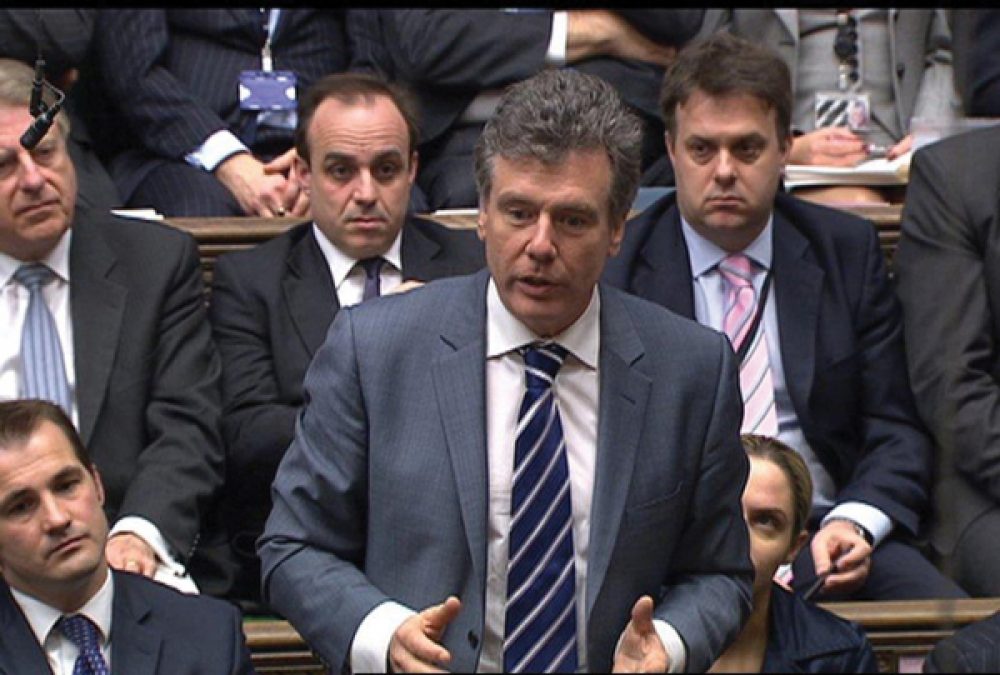A cross-party committee of MPs has warned the government that too few history teachers are being trained to teach lessons about the Holocaust.
The parliamentary education committee published a report today outlining the findings of an inquiry that looked at how the Holocaust is taught in schools.
It made a number of recommendations, including calling on the Department for Education (DfE) to do more to support organisations to deliver Holocaust education to more history teachers.
The report added that consideration should be given to the extension of training to teachers in subjects other than history.
It comes ahead of Holocaust Memorial Day on Wednesday, January 27 – the anniversary date of the liberation of Auschwitz concentration camp by the Soviet Union in 1945.
Neil Carmichael, chair of the committee, said: “Teaching young people about the Holocaust and its legacy continues to be a vital part of their education.
“During our evidence, we heard of some excellent and engaging teaching which serves to deepen young people’s understanding and knowledge of the Holocaust.
“However, too few teachers, particularly history teachers, are being trained to teach the Holocaust and our report calls on the government to act. We expect the DfE to ensure the support it gives to Holocaust education is as effective as possible.”
The report stresses the importance of students hearing from survivors, with a committee spokesperson recognising how young people benefitted “from hearing directly from some of those affected about the impact the Holocaust had on them and their families”.
The Committee also called for “steps to be taken to preserve the words of Holocaust survivors for future generations”.
Ilford North Labour MP Wes Streeting, a prominent Holocaust Memorial Day supporter who has written about the importance of remembering gay victims of the Nazi genocide, said: “The education committee findings really serve to underpin the importance of the government continuing to fund the Holocaust Education Trust (HET) and projects that encourage more people to engage.”
“I would like to see the government take on board some of these recommendations, particularly the one about teacher training.”
Karen Pollock MBE, chief executive of the HET, agreed: “We particularly welcome the recommendation that schools should be incentivised to take up teacher training opportunities on offer.”
Paul Salmons, programme director at the UCL Centre for Holocaust Education, University College London, said: “In our national teacher research, almost 80 per cent of those teaching the Holocaust identified the crucial need for professional development in this area.
“However, the committee is right to recognise that thousands are denied access to this support because, in too many schools, the Holocaust is not a curriculum priority.”
A DfE spokesperson said: “Every young person should learn about the Holocaust and the lessons it teaches us today, which is why it is unique in being the only subject named as a compulsory part of the history curriculum.”
“To further young people’s understanding of these terrible events, we have provided over £1.5m each year to the Holocaust Education Trust since 2006 to fund its ‘Lessons from Auschwitz’ along with £500,000 to the Centre for Holocaust Education to improve teacher knowledge and training.
“We know that good schools will include a significant event like the Holocaust in their history lessons, without being told to do so by government. We trust teachers to introduce this subject in the most appropriate way for their pupils.”
Details of UCL’s free national programme of Holocaust CPD and educational materials can be found here







An excellent idea to maintain Holocaust Education in the schools.
Eva Metzger Brown (Holocaust Survivor.)
i think the remembrance of the holocaust is just as equal of slavery and should cover equal billing in the curriculum